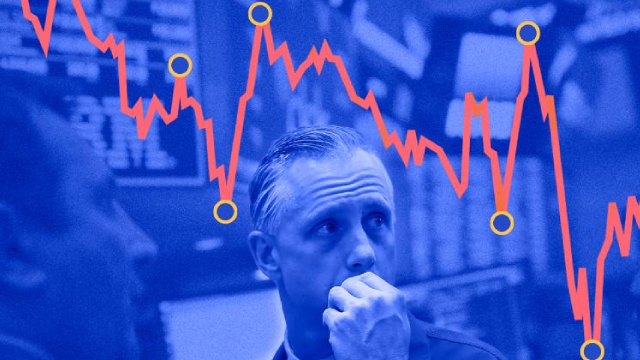iShares Global Tech ETF: A Hold with Long-Term Growth Potential
The technology sector has been a powerhouse of growth and innovation in recent years, and the iShares Global Technology ETF (IXN) aims to capture this trend by investing in companies around the world that are leading the way in tech development. However, despite the strong long-term growth potential of the tech sector, the iShares Global Tech ETF is currently rated as a hold.
Tariff Policies and Uncertainty
The primary reason for the hold rating is the uncertainty surrounding tariff policies and their potential impact on the tech sector. Tariffs can increase the cost of production for companies, and if these costs are passed on to consumers, it could lead to reduced demand for tech products. This uncertainty can make it difficult for investors to make informed decisions about where to allocate their funds.
Top Holdings Mitigating Tariff Impacts
Despite the uncertainty, it’s important to note that the top holdings of the iShares Global Tech ETF are taking steps to mitigate the impacts of tariffs. Apple, Microsoft, and Nvidia, which together make up around 25% of the ETF’s holdings, are diversifying their supply chains and taking other strategic actions to reduce their dependence on any one market.
Apple
- Apple has been working to reduce its reliance on China as a manufacturing hub. It has announced plans to invest $1 billion in a new data center in Denmark and $10 billion in a new campus in the United States.
- Apple has also been focusing on developing its services business, which includes the App Store, iCloud, and Apple Music. These businesses are less reliant on manufacturing costs and are therefore less affected by tariffs.
Microsoft
- Microsoft has been expanding its cloud business, which includes Azure and Office 365. These services are delivered over the internet and do not require physical manufacturing, making them less susceptible to tariff impacts.
- Microsoft has also been investing in research and development, particularly in areas like artificial intelligence and quantum computing. These investments could lead to new products and services that are in high demand and could help to drive growth for the company.
Nvidia
- Nvidia has been diversifying its manufacturing base, with a focus on Taiwan and South Korea. This could help to reduce its dependence on China and mitigate the impact of tariffs.
- Nvidia has also been investing in research and development, particularly in areas like artificial intelligence and gaming. These investments could lead to new products and services that are in high demand and could help to drive growth for the company.
Comparison with Competitors
Despite the strong long-term growth potential of the tech sector and the steps being taken by the top holdings of the iShares Global Tech ETF to mitigate tariff impacts, the ETF has lagged behind some of its competitors in terms of 10-year average annual returns. The Vanguard Information Technology ETF (VGT) and the Technology Select Sector SPDR Fund (XLK) have both outperformed the iShares Global Tech ETF in this regard.
Expense Ratio
Another downside of the iShares Global Tech ETF is its higher expense ratio. This means that investors will pay more in fees for each unit of the ETF they own. While this may not be a major concern for long-term investors, it could be a deterrent for those with shorter time horizons.
Implications for Individual Investors and the World
For individual investors, the hold rating on the iShares Global Tech ETF means that it may be prudent to consider other options in the tech sector that have a stronger track record of performance. However, it’s important to note that past performance is not indicative of future results, and the steps being taken by the top holdings of the ETF to mitigate tariff impacts could help to drive long-term growth.
At a global level, the uncertainty surrounding tariff policies and their potential impact on the tech sector could have wider implications. If tariffs lead to reduced demand for tech products, it could slow down the pace of technological innovation and economic growth. However, if companies are able to mitigate the impacts of tariffs through diversification and strategic actions, the tech sector could continue to drive growth and innovation.
Conclusion
The iShares Global Tech ETF is a hold due to the uncertainty surrounding tariff policies and their potential impact on the tech sector. However, the top holdings of the ETF, including Apple, Microsoft, and Nvidia, are taking steps to mitigate these impacts through diversification and strategic actions. While the ETF has lagged behind some of its competitors in terms of 10-year average annual returns, its higher expense ratio is another downside. For individual investors, it may be prudent to consider other options in the tech sector that have a stronger track record of performance. At a global level, the uncertainty surrounding tariff policies could have wider implications for the tech sector and the economy as a whole.





